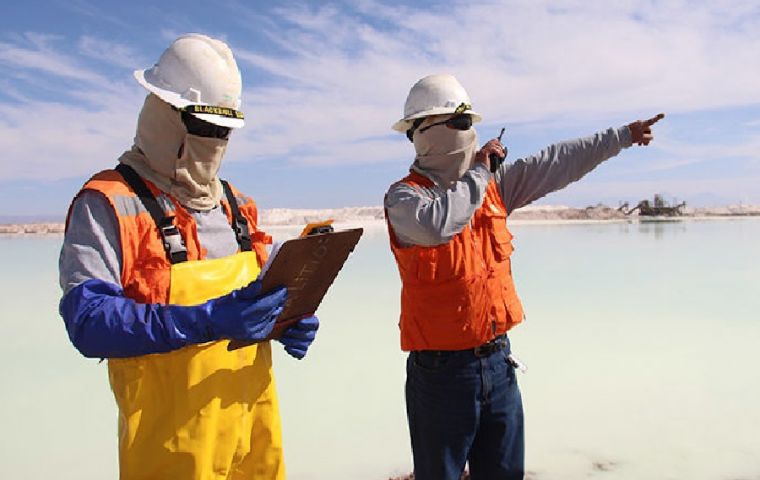MercoPress. South Atlantic News Agency
Native communities want in on Chile's lithium production
 The involvement of Indigenous groups in mining at a managerial level is rare in Latin America
The involvement of Indigenous groups in mining at a managerial level is rare in Latin America Lickanantay Indigenous communities in Chile's Atacama Desert are negotiating with mining giants Codelco and SQM to secure a historic governance role in lithium extraction, which accounts for 25% of global production and is vital for the manufacturing of electric vehicle batteries.
Since March 2024, talks have focused on giving the communities a voice in environmental, technological, and social decisions—such as water protection and extraction methods—rather than commercial control.
Driven by ethical mining demands and lessons from past protests like those in Panama in 2023, this model could set a precedent for Latin America. The Codelco-SQM partnership, with Codelco set to hold a majority stake in SQM’s Atacama operations by mid-2025. This scenario aligns with President Gabriel Boric Font's push for sustainability and Indigenous rights.
Considering that Boric’s term ends in March 2026, there is a certain degree of urgency to finalize the agreement amid uncertainty about future policies. This could enhance Chile’s standing as a responsible lithium supplier while addressing local concerns through the balancing of development with community inclusion. This approach could set a new standard for Indigenous involvement in Latin America’s mining sector.
“We have invited them to work together on a governance model that effectively recognizes and considers the perspectives and visions of the Lickanantay communities ... in the decision-making processes of the new company,” Codelco and SQM pointed out in a joint statement. The companies also said talks would continue this year, building on dozens of meetings last year with Atacama groups.
“The idea ... is that it's not just the company deciding what to do in our territory,” Peine Community Leader Sergio Cubillos noted.
“The companies have realized that interrupting production obviously has a damaging effect,” Toconao Community Leader Yermin Basques reckoned while admitting that dialogue with Codelco and SQM had at times been tense. “We have specific knowledge of our territory, of our water. And we have the power to close the salt flat if needed.”
The Atacama Indigenous Council (CPA) is made up of 18 communities, whose representatives will meet with those of Codelco and SQM every fortnight over the next two or three months to pen out a final proposal, which must be agreed upon by each community. Analysts foresee this to be achieved in the second semester of 2025. Codelco and SQM plan to raise lithium output by as much as 33% through 2060 after Boric announced plans in 2023 to shift to a state-led model.
“We have to hurry up because we don't know what could happen next year,” Basques explained. Chile has the world's largest proven reserves of lithium and is the second-largest producer behind Australia. While some Indigenous groups in Canada and Australia have taken a bigger role in environmental management, such practices are rare in Latin America.




Top Comments
Disclaimer & comment rulesCommenting for this story is now closed.
If you have a Facebook account, become a fan and comment on our Facebook Page!